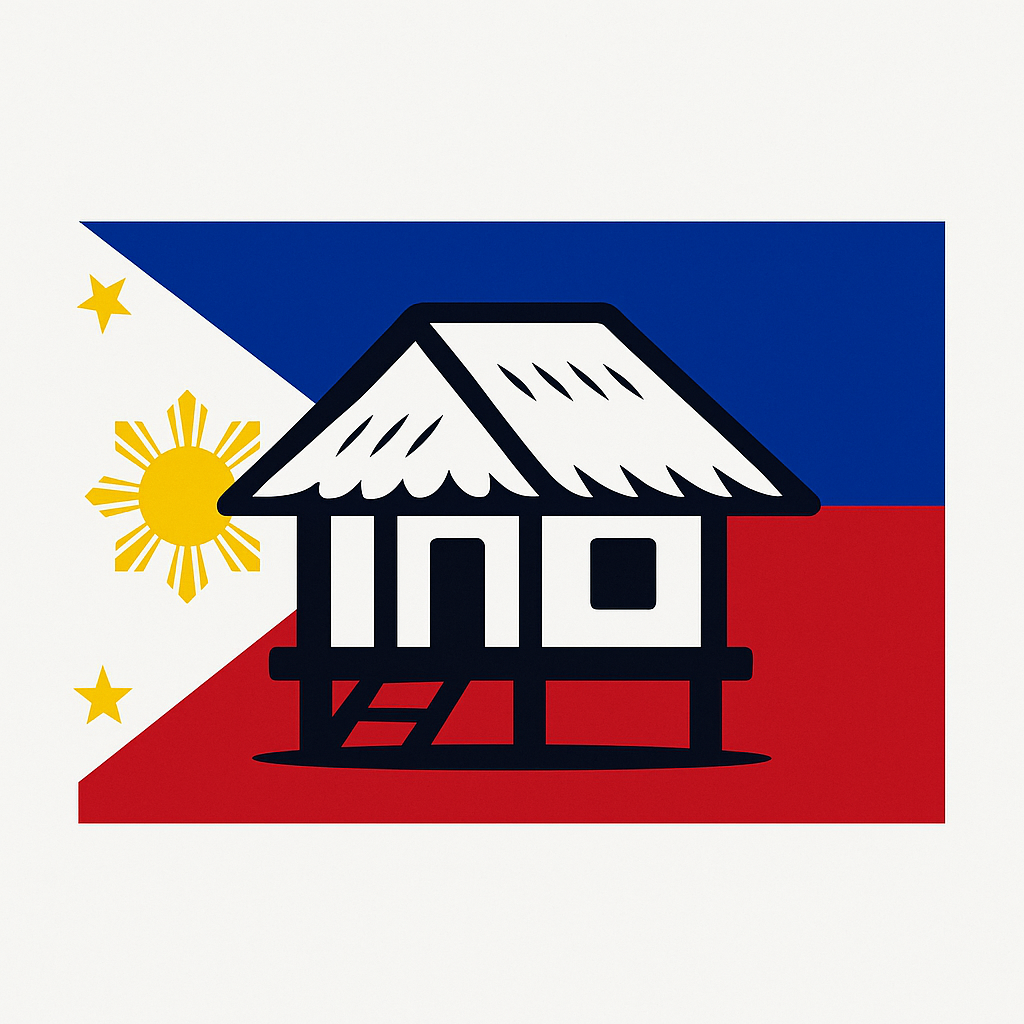The Rise of Halal-Certified Franchises in the Philippines

As the Philippines' demographics and global market engagement evolve, the country's franchising industry is experiencing a profound transformation, modernizing its traditional food, retail, and service offerings. What was once a business sector focused primarily on mainstream Filipino tastes and preferences has begun embracing a sophisticated understanding of religious dietary requirements and cultural sensitivity that's creating unprecedented opportunities for franchise growth. This shift represents more than simple market adaptation; it embodies a fundamental recognition of the Philippines' diverse population and its strategic position in the rapidly expanding global halal economy.
The numbers reveal a compelling story of transformation and opportunity. The global halal market is projected to reach $4 trillion by 2028, while the Philippines has established ambitious goals to increase halal-certified products from 3,000 to 6,000 units within the next four years. With 12 million Muslims comprising 10% of the Philippine population—making it the third-largest Muslim population in Southeast Asia—the domestic market alone presents substantial opportunities for franchise concepts that understand and serve halal requirements effectively.
The Regulatory Foundation for Halal Franchise Growth
The Philippine government's commitment to halal industry development has created a robust regulatory framework that supports franchise expansion while ensuring authentic compliance with Islamic dietary laws. The establishment of the National Halal Industry Development Office (NHIDO) under the Department of Trade and Industry represents a watershed moment for franchise operators seeking to enter or expand within the halal market segment.
Republic Act No. 10817, the Philippine Halal Export Development and Promotion Act, provides comprehensive legal framework that governs halal certification processes while creating clear pathways for businesses seeking to serve Muslim consumers domestically and internationally. This legislation establishes mandatory certification requirements for halal exports while maintaining voluntary certification for domestic consumption, creating flexibility that benefits franchise operators with diverse market strategies.
The "Halal-Friendly Philippines" campaign launched by the DTI positions the country as a premier halal gateway in the Asia Pacific region, creating marketing advantages for franchise concepts that align with this national branding initiative. This government support extends beyond simple regulatory compliance to encompass active promotion of halal-certified businesses in international markets.
Understanding halal franchises requires recognizing that successful compliance involves more than ingredient selection—it encompasses comprehensive operational protocols, supply chain management, and cultural sensitivity that define authentic halal business practices.
Market Dynamics and Consumer Behavior
The rise of halal-certified franchises reflects deeper changes in Filipino consumer consciousness that extend beyond religious requirements to encompass health, quality, and ethical considerations. Health-conscious consumers increasingly view halal certification as an indicator of superior food safety and quality standards, creating market opportunities that transcend religious demographics.
Cultural sensitivity and inclusivity have become important factors in franchise success, particularly in urban areas where diverse populations interact regularly. Franchises that demonstrate authentic commitment to serving Muslim consumers while maintaining appeal for broader demographics create competitive advantages that support sustainable growth.
The growing Muslim tourist market presents additional opportunities for halal-certified franchises, as the Philippines increasingly attracts visitors from Indonesia, Malaysia, and Middle Eastern countries who seek authentic halal dining and service experiences. This tourism segment often demonstrates higher spending patterns while actively seeking halal-certified establishments.
Social media amplification of halal-certified experiences proves particularly powerful in the Philippine market, where Muslim consumers actively share recommendations for authentic halal establishments across their social networks. This organic marketing creates valuable word-of-mouth promotion that traditional advertising cannot replicate.
The integration of consumer behavior impact analysis becomes essential for franchise operators seeking to understand how halal certification influences purchasing decisions across diverse demographic segments.
Certification Process and Operational Requirements
Obtaining halal certification for franchise operations involves comprehensive evaluation of ingredients, processes, facilities, and operational procedures that ensure compliance with Islamic dietary laws. Accredited certification bodies including the Halal Development Institute of the Philippines (HDIP), Halal Industry Certification Council of the Philippines (HICCIP), and the Islamic Da'wah Council of the Philippines (IDCP) provide certification services with varying standards and recognition levels.
The certification process typically requires 3-6 months and involves detailed documentation of supply chains, manufacturing processes, and facility operations. Franchise operators must demonstrate that all ingredients, equipment, and procedures comply with halal requirements while maintaining operational efficiency and cost-effectiveness.
Ongoing compliance monitoring requires franchises to maintain detailed records of supplier certifications, ingredient sources, and operational procedures that ensure continued halal integrity. This documentation becomes particularly important for franchise concepts with multiple locations that must maintain consistent standards across their networks.
Staff training requirements extend beyond simple ingredient awareness to encompass cultural sensitivity, Islamic customs, and proper handling procedures that demonstrate authentic respect for halal principles. This comprehensive approach to staff education creates competitive advantages while building trust with Muslim consumers.
The complexity of halal certification necessitates understanding analyzing support systems that franchisors provide to help franchisees navigate certification requirements and maintain ongoing compliance.
Investment Characteristics and Financial Considerations
Halal-certified franchises often require additional investment considerations beyond traditional franchise costs, reflecting the specialized requirements for certification, training, and ongoing compliance. Initial certification costs, specialized equipment, and enhanced training programs typically add 10-15% to traditional franchise investment requirements while providing access to underserved market segments.
Premium pricing opportunities often justify additional investment requirements, as Muslim consumers frequently demonstrate willingness to pay higher prices for authentic halal-certified products and services. This pricing power creates opportunities for improved profit margins that can offset higher operational costs.
Supply chain considerations may require franchises to source ingredients and materials from certified halal suppliers, potentially affecting cost structures and inventory management procedures. However, the growing availability of halal-certified suppliers in the Philippines is reducing these challenges while improving cost competitiveness.
Market expansion potential through halal certification creates opportunities for franchises to serve international markets, particularly in Southeast Asia where halal requirements are mandatory for many product categories. Understanding franchise costs becomes essential for evaluating halal certification investments.
Sector-Specific Applications and Success Models
Food and beverage franchises represent the most obvious application for halal certification, where restaurants, fast-food concepts, and food processing operations can serve Muslim consumers while appealing to health-conscious non-Muslim customers. The success of international halal food chains demonstrates the viability of this market segment.
Food manufacturing and processing franchises benefit from halal certification through access to export markets and premium domestic segments. The ability to serve both domestic and international markets creates revenue diversification opportunities that justify certification investments.
Retail and distribution franchises can leverage halal certification to serve specialized product categories including halal cosmetics, pharmaceuticals, and personal care products that appeal to Muslim consumers while attracting health-conscious mainstream customers.
Service-based franchises including logistics, consulting, and business services can obtain halal certification to serve Muslim-owned businesses and organizations that prefer working with halal-certified service providers. Understanding exploring service opportunities becomes essential for identifying halal service market potential.
Technology Integration and Modern Halal Operations
Modern halal-certified franchises increasingly rely on sophisticated technology systems that ensure compliance while maintaining operational efficiency. Blockchain-based supply chain tracking enables franchises to maintain transparent records of ingredient sources and handling procedures that demonstrate halal integrity to consumers and regulators.
Digital certification management platforms streamline compliance monitoring while providing real-time visibility into certification status across multiple franchise locations. These systems reduce administrative burden while ensuring consistent compliance standards.
Mobile applications and QR code systems enable customers to verify halal certification status instantly while accessing detailed information about ingredients, suppliers, and certification bodies. This transparency builds consumer trust while differentiating certified franchises from competitors.
The strategic implementation of technology tools becomes essential for halal-certified franchises seeking to maintain compliance while achieving operational efficiency and customer satisfaction.
International Market Opportunities
The Philippines' strategic position in Southeast Asia creates exceptional opportunities for halal-certified franchises to expand into international markets where halal certification is mandatory or highly preferred. Indonesia, the world's largest halal market valued at $279.26 billion in 2023, represents the most significant opportunity for Philippine halal-certified franchises.
Malaysia, Brunei, and Middle Eastern markets provide additional expansion opportunities for franchises that can demonstrate authentic halal compliance and cultural sensitivity. These markets often offer premium pricing for quality halal products and services from certified international sources.
Export facilitation programs supported by the Philippine government provide assistance for halal-certified businesses seeking international expansion, including trade missions, market research, and regulatory guidance that reduce barriers to international growth.
The development of regional halal certification mutual recognition agreements creates opportunities for Philippine-certified franchises to enter international markets without additional certification requirements, reducing expansion costs while accelerating market entry.
Cultural Integration and Community Impact
Successful halal-certified franchises demonstrate authentic understanding of Islamic culture and values rather than simply meeting technical certification requirements. Cultural sensitivity in marketing, service delivery, and community engagement creates stronger relationships with Muslim consumers while building positive brand reputation.
Community involvement through Islamic holidays, charitable activities, and cultural events enables halal-certified franchises to build deeper connections with Muslim communities while demonstrating genuine commitment to serving their needs. This authentic engagement creates competitive advantages that extend beyond product offerings.
Interfaith dialogue and cultural bridge-building opportunities emerge through halal-certified franchises that serve diverse customer bases while promoting understanding and respect across different religious and cultural groups. This broader social impact creates positive brand associations while contributing to community harmony.
The integration of Filipino culture franchise principles with halal requirements creates unique opportunities for franchises that authentically serve both Muslim and mainstream Filipino consumers.
Future Implications and Strategic Considerations
The trajectory of halal-certified franchise growth in the Philippines appears sustainable and accelerating, supported by government initiatives, growing consumer awareness, and expanding international market opportunities. The DTI's four-year plan to double halal-certified products creates a supportive environment for franchise expansion while establishing the Philippines as a regional halal hub.
Emerging sectors including halal tourism, Islamic finance, and halal pharmaceuticals will create additional opportunities for franchise concepts that understand and serve Muslim consumer needs. These expanding market segments offer first-mover advantages for franchises that can develop authentic halal service capabilities.
Sustainability and ethical business practices increasingly align with halal principles, creating opportunities for franchises that can demonstrate environmental responsibility while maintaining halal compliance. This convergence appeals to conscious consumers across religious demographics.
Technology advancement including artificial intelligence, blockchain, and advanced analytics will continue enhancing halal certification and compliance capabilities while creating new opportunities for customer engagement and operational efficiency.
The rise of halal-certified franchises in the Philippines represents more than a niche market opportunity—it embodies a fundamental shift toward inclusive business practices that recognize and serve the country's diverse population while positioning Philippine businesses for success in the global halal economy. Success in this evolving landscape requires understanding that halal certification isn't simply about meeting religious requirements—it's about building authentic relationships with Muslim consumers while creating business models that serve broader market needs through quality, transparency, and cultural sensitivity. The franchise concepts that thrive in this halal economy will be those that view certification as a pathway to excellence rather than a compliance burden, creating sustainable competitive advantages that serve both Muslim and mainstream consumers while contributing to the Philippines' emergence as a leading halal destination in Southeast Asia.

